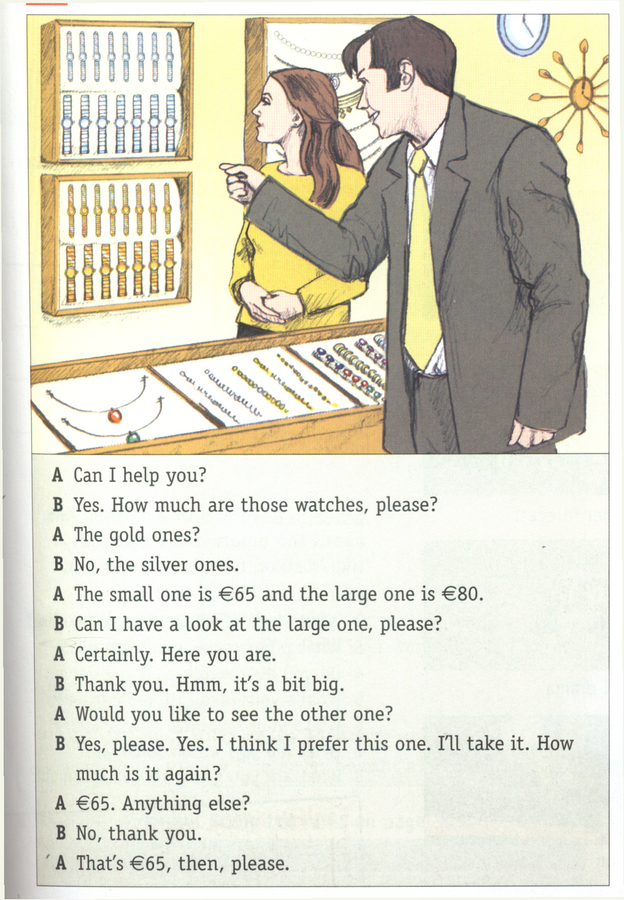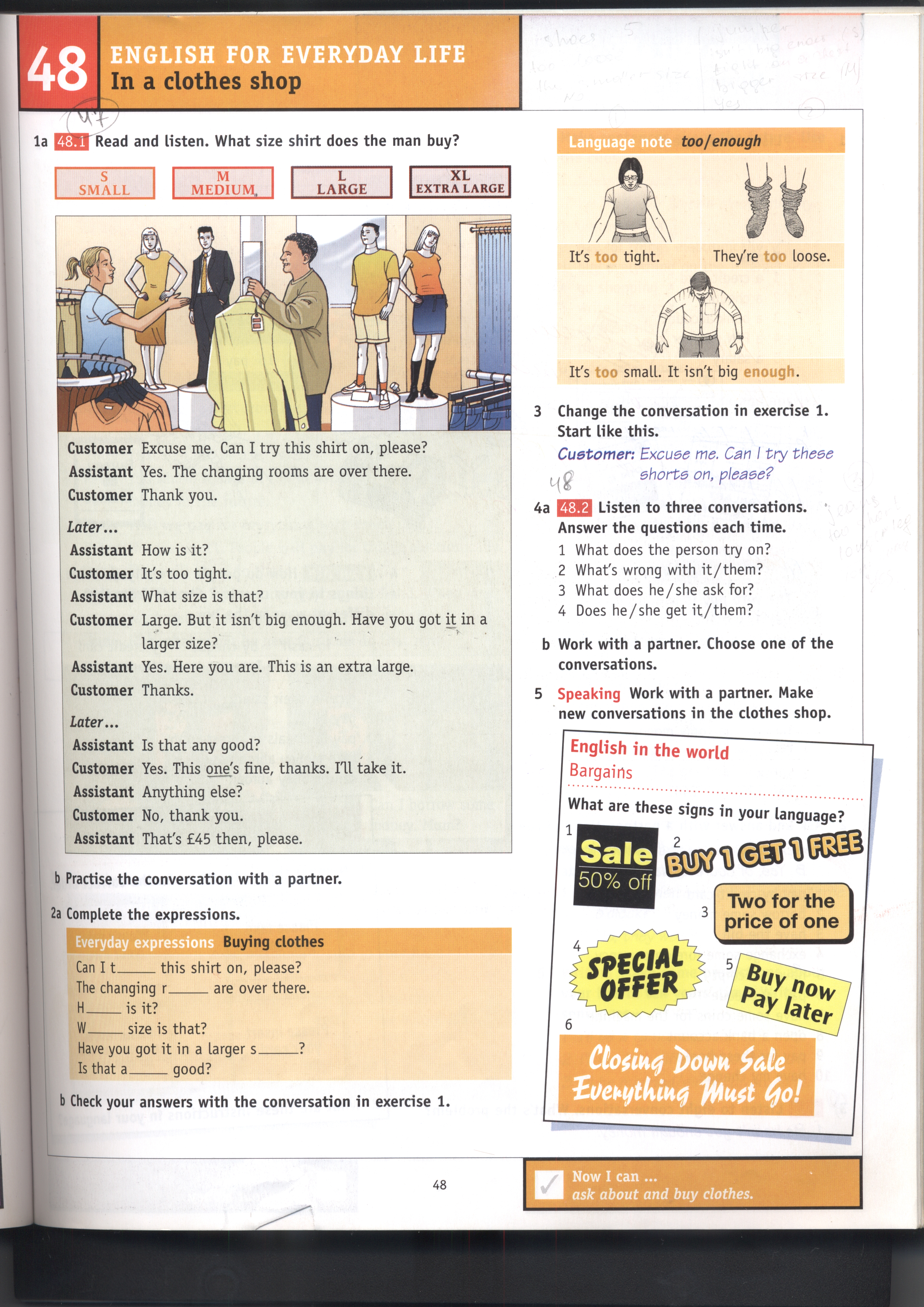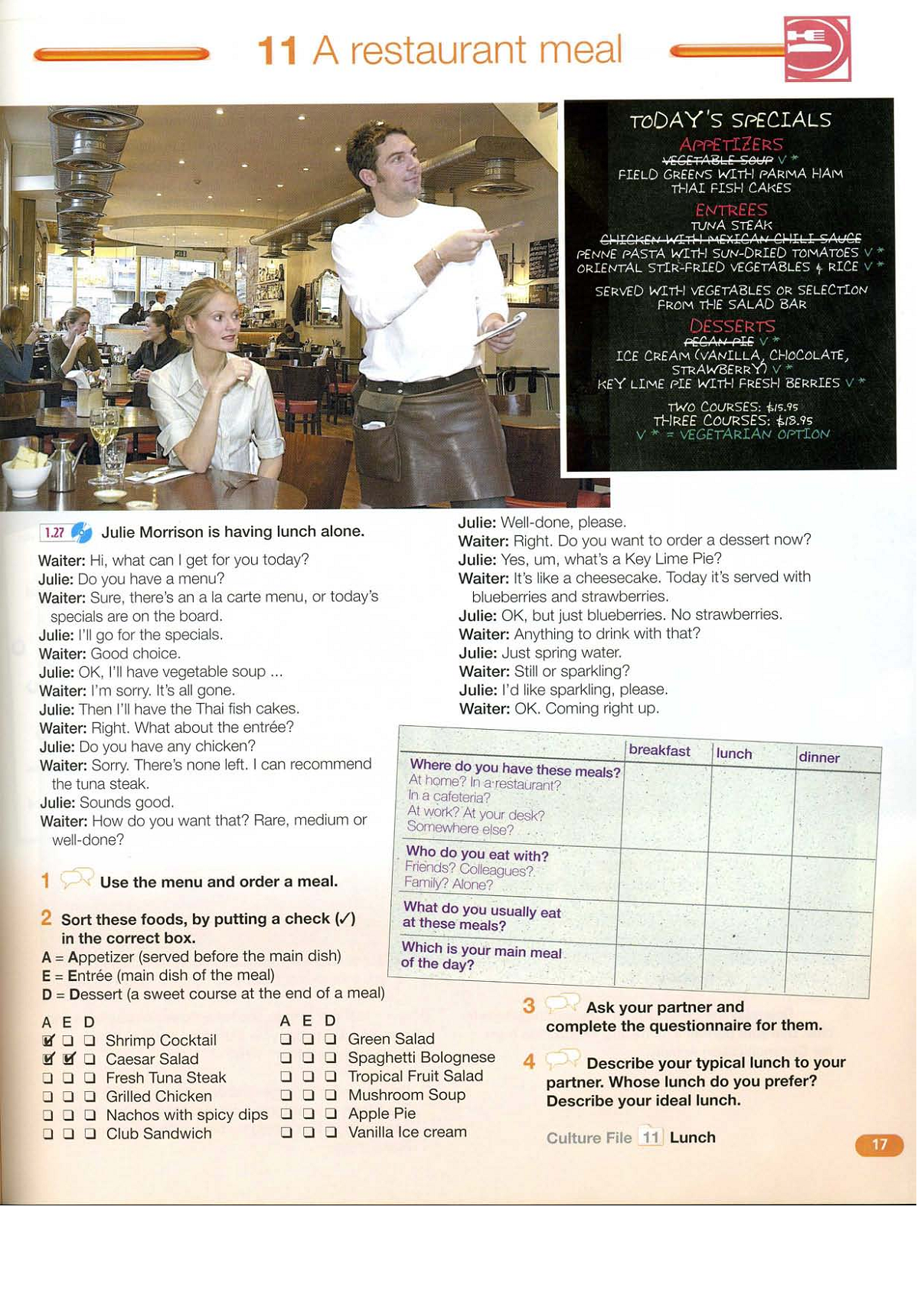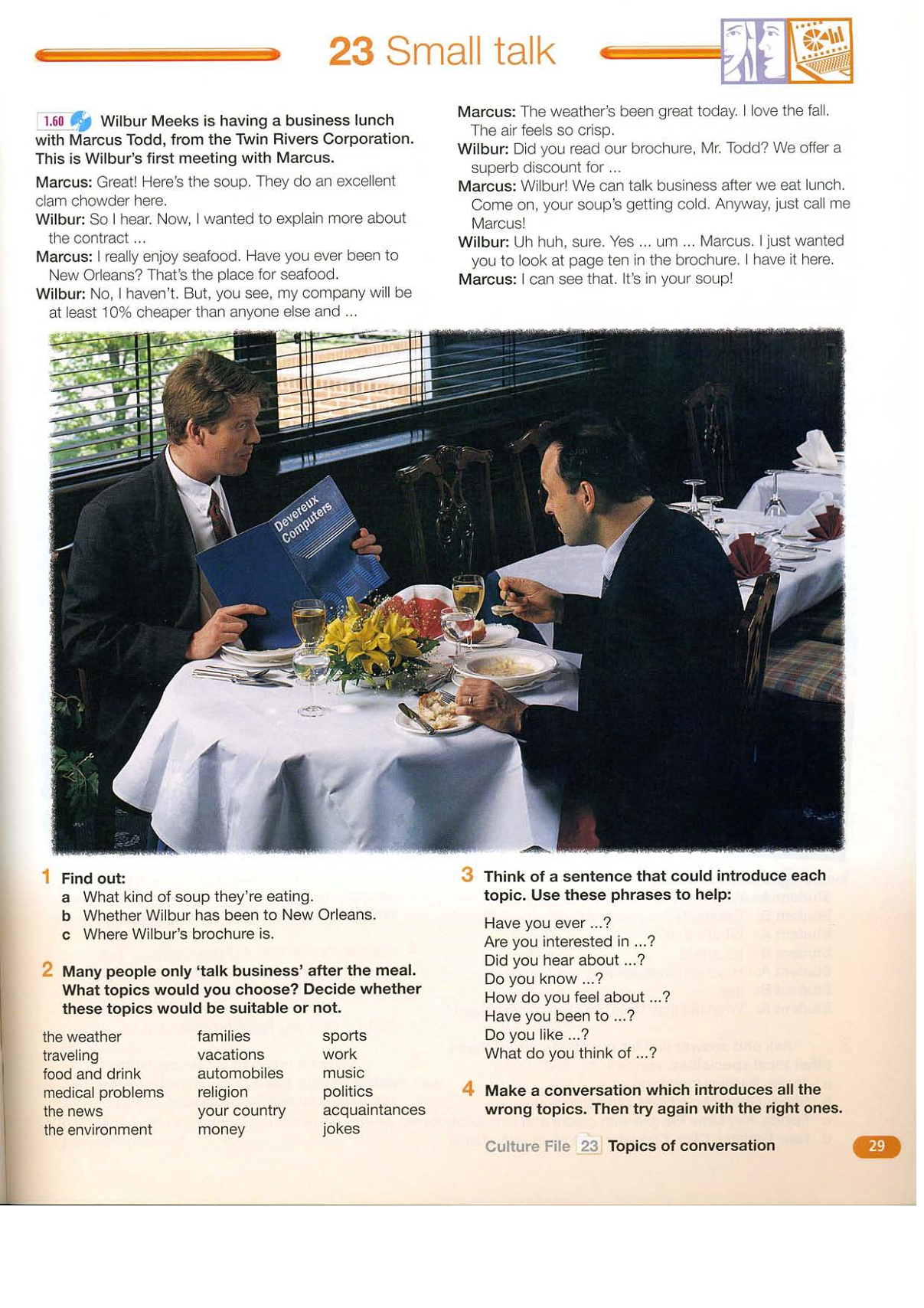
- •Тема: Этика делового общения
- •1.Look at the picture. Read and listen. Where are Michael and Zofia from?
- •3. Greet some people in your class. Use the conversation in exercise 1
- •4. Read Countries and nationalities.
- •5. Role -play the dialogues imaging that your partner is from one of these countries.
- •2. Use your answers to exercise 1. Complete the parts of the form.
- •3. Match the 'official' terms with the questions.
- •4. Fill the same form for yourself. Work in pairs. Ask your partner the questions from ex.3 and answer his/her ones.
- •5. Read a sample of an American business letter with the help of a dictionary. Pay attention to its composition and wording
- •6.Read the example of invitation
- •Application
- •1. Письмо – ходатайство на запрос или объявление о работе:
- •2. Письмо – «неходатайство», когда идет самостоятельный поиск работы:
- •Тема: Рабочий день делового человека (a Woking day of a Bussinessman) My Work at the Office
- •2. Make a list of international words used in the text. Pronounce them correctly and learn their meanings.
- •3. Give Russian equivalents to the following English word combinations:
- •Who likes not his business his business likes him not. Busiest men find the most time.
- •Тема: Телефонный разговор (a Phone Conversation)
- •1. Listen to the conversation. 2.32
- •2. Ask your partner these questions:
- •3.Read the text Travelling on Business
- •2. Make a list of international words and expressions used in the text. Pay attention to their correct pronunciation and meanings.
- •3. Give Russian equivalents to the word combinations. Use the text for reference:
- •4. Give English equivalents to the word combinations. Use the text for reference:
- •5. Answer the following questions to discuss the details of the text. Use the text for reference.
- •6. Read the text attentively. Divide it into logical parts and make a plan for retelling.
- •7. Imagine that you are the author of the text. Retell the text. Speak about a business trip: a) by train; b) by air
- •8 Listen to the conversation. 1.28 Jeff Kramer is flying to Denver. He's at the airport check-in desk now.
- •9. Role-play the conversation. Change the words in blue. Use your partner's name and information from the Communication Activity.
- •10. Discuss the proverbs. Use them while speaking about customs and in other situations to make your speech more expressive. Honesty is the best policy. Gone for a penny, gone for a pound.
- •11. Speak about your own experience of going through the customs. Use the material of the unit.
- •Staying at a Hotel
- •I. Read the words to the text. Pronounce them correctly and learn their Russian equivalents. Pay attention to the international words, their pronunciation and meaning:
- •II. Give English equivalents to the following word combinations. Use the text for reference:
- •III. Answer the following questions to discuss the details of the text. Use the text for reference.
- •IV. Read and discuss the proverb.
- •V. Speak about your stay at a hotel. Use the material of the unit and your own experience if you have any. Describe the sdvantages and disadvantages of hotels.
- •Shopping
- •I. Read the words. Say what things can people buy at these shops and departments.
- •II. Read and listen to the dialogue.
- •III. Answer:
- •At the Restauraunt expressions for dialogues (role-play)
- •1. Activating Background Knowledge
- •2. General Comprehension
- •What Is Economics
- •3. Pronunciation
- •4. Word Study
- •6. Diving Deeper
- •7. Speaking
- •8. Translatе the text
- •1. Memorize the words.
- •2. Answer the following questions.
- •3. Read the text The Republic of Belarus
- •4. Match the words on the left to those on the right. Make 10 word partnerships and translate them into Russian.
- •5. Find in the text the English equivalents for the following Russian collocations.
- •6. Get ready to discuss the following.
- •1. Memorize the words.
- •2. Answer the following questions before you read Text a.
- •3.Read text and fulfill the tasks which follow. Belarusian Economy
- •4. Match the words on the left to those on the right. Make 10 word partnerships and translate them into Russian.
- •5. Find in the text the English equivalents for the following Russian collocations.
- •6. Choose the best alternative to complete the sentence.
- •2. Answer the following questions before you read Text a.
- •3.Read the text and fulfill the tasks which follow. Great Britain
- •4. Match the words on the left to those on the right. Make 10 word partnerships and translate them into Russian.
- •5. Find in the text the English equivalents for the following Russian colloca- tions.
- •6. Choose the best alternative to complete the sentence.
- •2. Answer the following questions before you read Text a.
- •3.Read the text and fulfill the tasks which follow. British Economy
- •4. Match the words on the left to those on the right. Make 10 word partnerships and translate them into Russian.
- •5. Find in the text the English equivalents for the following Russian collocations.
- •6. Choose the best alternative to complete the sentence.
- •7. Answer the following questions.
- •8. Get ready to discuss the following.
- •Marketing — a Driving Force of Companies
- •1. Find international words in the text and write them out. Learn their correct pronunciation.
- •2. Give Russian equivalents to the following word combinations:
- •4. Answer the following questions to discuss the details of the text
- •5. Finish the sentences according to the text.
- •6. Prove the statements using the information from the text.
- •7.Say if the following sentences are true or false before reading the text, then read the text and check your answers.
- •Advertising and Advertisement
- •Marketing Management
- •1.Find international words in the text and write them out. Learn their correct pronunciation. Say which ones are the easist to understand.
- •2.Give Russian equivalents to the following word combinations:
- •3.Give English equivalents to the word combinations:
- •4. Find in the article the opposites to the following words:
- •5.Finish the sentences according to the text.
- •1. Answer the questions:
- •2. Translate into English:
- •British Schools
- •1. Answer the questions:
- •2. Compare British and Belarussian Education.
- •A Hairdresser With a Passion For Styling
- •At the Hairdresser’s
- •Hairdresser services
- •Growing up of hairs
II. Read and listen to the dialogue.

III. Answer:
1. What did the customer want to buy? 2. How much does it cost? 3. What did he buy?

IV.Tell about shopping. 1.Where do you like going shopping? Why? 2. Tell about the advantages of different kinds of shops.3.Imagine, that you are at the clothes shop. You’d like to do some shopping. Ask your partner to show you the things you want.
Тема: Having a Meal at tne Restauraunt


At the Restauraunt expressions for dialogues (role-play)
waiter client
- Here is the menu - Bring me the menu, please.
What will you have? - Have you got a table for two?
What would you like? - Could you bring us the menu, please.
What are you going to have? - We are hungry.
Are you ready to order? - It all looks delicious.
(Can I take your order?) - It tastes like …
Have you decided yet? - What do you recommend?
Would you like chicken or beef (or both)? - What’s the main course?
And would you like salad with it? - What’s in the dish?
What sort would you like? - I’d like beef (chips, pork) to follow.
Would you like anything to drink? - I’d prefer steak ….
How would you like your tea, with or - Tea for me. You too? Tea for them.
without milk/ sugar / cream? - Just coffee.
Do you take sugar in your coffee? - Could you give me a pint of beer, please
Service is included in the bill. - I’d like to try (to have, to order) this dish, please
And to follow? - How much does all that come to?
How about the sweet? - How much does it cost?/How much is it?
- Can I have the bill, please?
Тема: Экономика (Economics)
1. Activating Background Knowledge
A. If you were to define the word "economics", what key-words would you use in your definition? Choose from the list of words those which you consider to be the guiding ideas in economics; you can add any words of your own.
Capital, company, sales, goods and services, invest, business, produce, distribute, choice, cost, market, scarcity, industry, employ, satisfy, people, profit, GDP, needs, govern, economize, competition, money, resources, labour, agriculture, policy, land, loss.
B. In groups, work out a definition of "economics". Compare your definitions in class and vote for the best one.
2. General Comprehension
Read the text and compare your definitions with those suggested by the author of the text: what do the definitions have in common and what is different?
What Is Economics
Economics is as old as the human race: it is probably the first art which man acquired. When some cavemen went out to hunt while others remained to defend the fire or when skins were traded for flint axes, we had economics. But economics as an academic discipline is relatively new: the first major book on economics Adam Smith's "The Wealth of Nations" was published in 1776. Since that time the subject has developed rapidly and there are now many branches of the subjects such as microeconomics, international economics and econometrics as well as many competing schools of thought.
To define the word "economics" we should first of all ascertain its essence, see what it is based on.
Most people want more than they can afford to buy. If a family buys one thing, they may not be able to afford something else they would like. The same is true of nations. Whether a nation is rich or poor, most of its people want more than they can afford. They seek better schools, more houses, and stronger armed forces. The field of economics studies how the things people need and want are made and brought to them. It also studies how people and nations choose the things they buy from among the many things they want.
Another aspect of the problem is people themselves: they do not just want more food or clothing, but specific items of clothing and so on.
However, the guiding idea in economics is scarcity. In all countries, the resources used to produce goods and services are scarce. That is, no nation has enough farms, factories, or workers to produce everything that everyone would like. Money is also scarce. Few people have enough money to buy everything they want when they want it. Therefore, people everywhere must choose the best possible way to use their resources and money. Children may have to choose whether to spend their allowance on a motion picture or a hamburger. Storekeepers may have to choose whether to take a summer vacation or to use their savings to buy more merchandise. A nation may have to choose whether to use tax money to build more highways or more submarines. In economic terms,,the children, the storekeepers, and the nation all must economize to satisfy their most important needs and wants. This means they must try to use the resources they have to produce the goods and services they most want.
We have now assembled the three vital ingredients in the definition of economics: people, scarcity and choice. Thus, we could define economics as the human science which studies the relationship between scarce resources and the various uses which compete for these resources.
The great American economist Paul said that every economic society has to answer three fundamental questions: What? How? and For whom?
What? What goods are to be produced with the scarce resources: clothes, food, cars, submarines, television sets?
How? How should we combine the basic resources of labour and land to produce the goods and services which we want?
For whom? Having produced goods and services, we have to decide how to distribute them among the people.
How a society answers these questions depends on the type of economic system a particular society uses. Actually, in every economy societies and individuals have to make these three key choices in the face of scarcity.
One alternative definition of economics is that it is the study of wealth. By wealth the economist means all the real physical assets which make up our standard of living: clothes, houses, food, roads, schools, hospitals, cars, oil tankers, etc. One of the primary concerns of economics is to increase the wealth of a society, i.e. to increase the stock of economic goods. However, in addition to wealth we must also consider welfare. The concept of welfare is concerned with the whole state of well-being. Thus, it is not only concerned with more economic goods but also with public health, hours of work, with law and order, and so on.
